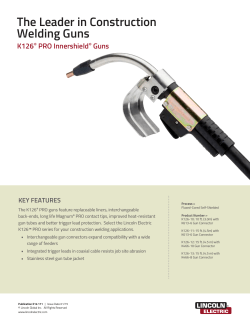
Can The Public Mental Health System Reduce Gun Violence?
Can The Public Mental Health System Reduce Gun Violence? Joel A. Dvoskin, Ph.D. University of Arizona College of Medicine Joelthed@aol.com Acknowledgments-The opinions contained in this presentation are my own, but I owe a deep debt of gratitude to the following colleagues and mentors who helped to inform and shape these ideas: • • • • • • • John Monahan Robert Kinscherff Paul Appelbaum Rodney Hammond Jeffrey Swanson Susan Sorenson Eric Mankowski • • • • Gary Gottfredson Clinton Anderson Ron Schlittler Park Dietz Haiku Ignorance is bliss? Nope. It is just ignorant. Only bliss is bliss. - Joel Dvoskin News Flash: Cable News Misleads • Individuals with SMI are often portrayed as the most common perpetrators of gun violence, by repeating stories of a relatively few violent acts committed by people alleged to have these disorders. • Gun violence is neither statistically nor intrinsically related to serious mental illness • SMI accounts for a small percentage (about 4%) of violent crime (Swanson). Politicians Reaction to Myths • Laws aimed at restricting gun ownership solely due to a diagnosis of SMI are misguided and likely counter-productive • Such laws increase stigma and drive people away from treatment. • For those few cases where people with apparent SMI committed mass homicide, it was typically before they had ever received treatment or diagnosis. The Real Dangers of Gun Violence • Handguns or Long Guns? • Homicide or Suicide? – Suicides account for 61% of US gun fatalities (approx. 19,000 versus 11,000 in 2010) – 8 of 10 suicide attempts by firearm succeed • “The Mentally Ill” or People in Crisis? • Mental illness versus Intoxication? • Mass homicide accounts for <1% of gun fatalities How Can the MH System Help? • The public mental health system can orevent some gun violence gun violence… • …by responding timely and competently to people in crisis. • Due to massive budget cuts, the ability of the public MH system and first responders to respond to emotional, psychological, and suicidal crises has deteriorated, with sometimes tragic results. Intentional Ignorance is a Stupid Way to Create Public Policy • Prohibitions against gun-related research are an abomination, but… • …Research must be even-handed and respectful of privacy rights • Public policy and willful ignorance • National Violent Death Reporting System must be expanded nationwide Why Can’t We Just Profile the High Risk People? • Common Traits – Anger/Rage – Depression/ Despair – Social Awkwardness – Social Disconnectedness – Feelings of Profound Insignificance (i.e., the millions of people who comprise the target demographic of cable news) Profiles are Stupid • All of these are non-specific indicators. • Millions of people have these characteristics. • Almost none will commit a massacre. • Most are unknown to MH services. • Profiles and stereotypes are blinders that impair our ability to accurately assess risk. Why a National MI Database Won’t Work (Sanger-Katz) • MHP’s are not good at identifying people who will go on to commit acts of violence. • Many perpetrators of mass shootings had no contact with the mental-health system. • Among people with schizophrenia, a disease with the highest rates of violent behavior, only one person in 140,000 will kill a stranger. Identifying Risk • It appears risk for violence in psychotic illnesses is highest early in the course of illness, frequently before people are identified as mentally ill and receive treatment.” Paul Appelbaum, MD A Different Way to Understand Mass Homicide • Every single one of these people has decided to end his or her life as they know it: – Suicide – Suicide by cop – Capital punishment – A lifetime in prison or hospital The Role of Suicide • We have no ability to predict mass homicide. • We know how to prevent suicide, which is an essential component. • We just don’t do it, and the suicide rate in America has gone up instead of down. • Re-funding the public MH system would prevent some gun violence by providing people in crisis with pro-social alternatives to reduce their psychological pain. Treating People in Emotional Crisis • People who feel sad, angry, disconnected, and insignificant probably won’t kill a bunch of strangers. • But they might commit suicide, or become addicted, or end up in jail. • It’s impossible to identify mass murderers in advance……but it’s easy to identify people in crisis. • The enemy is not mental illness – it’s despair. What We Can Do • We should help people in despair because they need help. • When help is easily obtained and userfriendly, perhaps the next would-be assassin will decide that there is another, better way to end their psychological pain. • If we do it often enough, we’ll prevent tragedies…but we’ll never know it.
© Copyright 2025















![Radio or TV [Name] [Official Title]](http://cdn1.abcdocz.com/store/data/000288231_1-a65dc209686ed5f637d1bd95ae1c3412-250x500.png)





